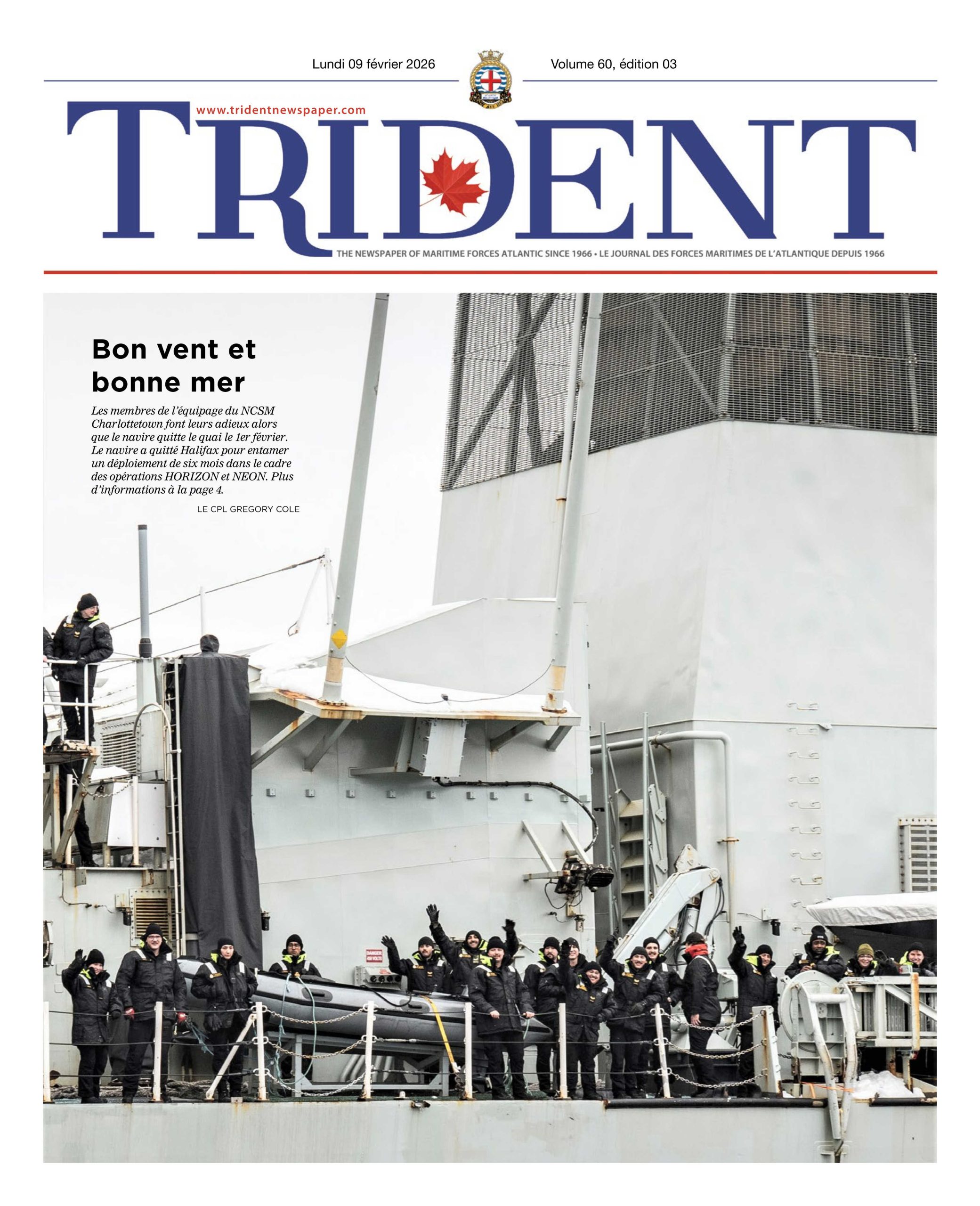
Photo: Cpl J.W.S. Houck. FIS
First Mar Tech graduation marks new chapter for RCN trades
Par Ryan Melanson,
L’équipe du Trident
The Royal Canadian Navy has been slowly transitioning to the new Marine Technician trade over the last three years, and recently marked a new milestone on that front. A graduation ceremony for the very first Mar Tech RQ-OS course was held at Tribute Tower at CFB Halifax on March 29, capping off nearly nine months of intense work for the 18 sailors who made up the group.
“We determined what type of new technician the Navy needed, and there have been a lot of challenges, but thanks to the positive attitudes and incredible work of everyone involved, we now have the first course behind us,” said Cmdre Craig Skjerpen, Commander CANFLTLANT, speaking to the graduates of the course and their colleagues, friends and family members who attended the ceremony.
The Marine Technician, or Mar Tech, is a new trade that will soon replace the marine engineer, electrical technician and hull technician legacy occupations, along with the Naval Reserve’s marine engineering systems operator position. Mar Techs will still develop specializations, but each sailor will start off with a wider base of knowledge that includes elements of the former trades along with new material.
“As opposed to having four specific trades and deploying them independently on a ship, we’ll now have multiple people that can do some of these tasks. It’s going to allow us to reduce our manning and crew sizes while maintaining the same capabilities we have right now,” said CPO2 Ed Burns, the MSE Division CPO at Naval Fleet School (Atlantic),
“This is absolutely the way we want to be moving toward the future.”
The transition to Mar Tech is the first in a series of planned changes, with studies currently underway into aspects of the boatswain, steward, and naval communicator trades, while another study is looking at combat trades. The initial course began in July of last year, and the program has grown steadily since then, with more graduates soon to follow. Members of the first group have played an instrumental role in improving the course for the next iterations. CPO2 Burns said students were tasked with providing feedback through the process, and asked to speak up if they identified issues with their training.
“The feedback is very important. They took the time to cross-reference their own course materials with what we were doing to make sure nothing was missed. It’s not something we typically ask members to do during a course, but they took the task on and took it seriously,” he added.
“That gave us what we needed to make changes and start making the course better for the next groups.”
A number of these first graduates are originally from Nova Scotia, while others hail from other provinces like New Brunswick, Ontario and British Columbia, with one sailor, OS Najib Moussa, having emigrated to Canada from Egypt before joining the RCN in Halifax. They’ve all received postings, with some heading to frigates of the Atlantic Fleet like HMCS Halifax, Toronto, et tragique, some being posted to West Coast frigates, and others sent to continue their training on either coast as part of the MCDV fleet.
The goal in developing the Mar Tech trade is to prepare the RCN for the future fleet, including the soon to be delivered Harry-DeWolf class AOPS and the Canadian Surface Combatant through the 2020s. As these new sailors progress into leadership roles in their various ships, they’ll be on the front lines of that effort, Cmdre Skjerpen said.
“There’s going to be ups and downs, challenges and long deployments, but they are going to see and be a part of changes in the Navy that I’ve only dreamed of.”






